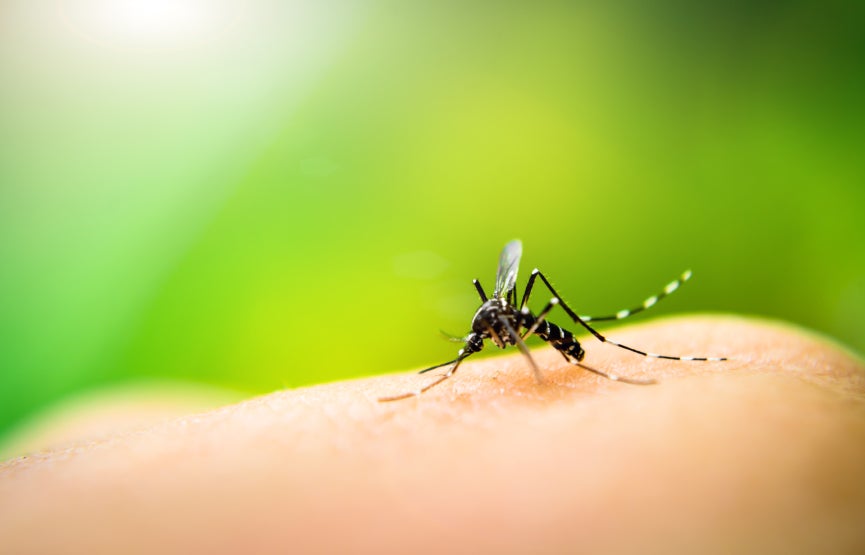
The most recent reports from The Centers for Disease Control and Prevention (CDC) find that more than 350 Americans have contracted the Zika virus, including 31 pregnant women. The vast majority are travel-associated cases. Cases of Zika reported in Puerto Rico, U.S. Virgin Islands and American Somoa are the only locally acquired cases reported at this time. However, concern continues to build, especially in areas of the country preparing for mosquito season in upcomingweeks, including Oklahoma. Utica Park Clinic physician Dr. Jeffrey Galles joins us on the blog to share what we need to know about Zika to protect ourselves and our families.
First and foremost, the mosquito that carries the Zika virus does not live in the state of Oklahoma. The main concern Oklahomans should have with mosquito-borne illnesses is from the West Nile Virus. The risk of contracting West Nile Virus disease can be minimized by four simple actions: Cover bare skin with loose clothing, use an insect repellant containing DEET when outdoors, avoid going outdoors in the early morning and evening hours, and eliminate standing water in your yard or neighborhood.
On the other hand, there has been a great deal of concern nationally about the Zika virus. This infection is transmitted by being bitten by the Aedes mosquito, which is native to Africa, Southeast Asia, South America, Puerto Rico, the U.S. Virgin Islands and the Pacific Islands. In otherwise healthy children or adults, Zika infections are mild and resolve within a week or two. Many people don't even know that they are infected.
This infection is unusual in that it can be sexually transmitted from an infected man to his sexual partner(s). A pregnant woman who becomes infected can also pass the virus to her fetus during pregnancy. The reason that this is important is that most of the Zika cases reported in the U.S. have been related to infected men returning from a trip where Zika is present and then infecting a female who was pregnant or became pregnant shortly thereafter.
The primary concern about the Zika virus is the strong correlation between the infection in pregnant women and the development of Microcephaly in the newborn. Microcephaly is a devastating birth defect related to fetal brain development, which leads to severe brain damage. These children suffer from intellectual disabilities, developmental delays, hearing and vision difficulties, as well as many other problems.
Women who are pregnant or planning to become pregnant should talk to their physician before traveling to those regions discussed above. In addition, they should avoid sexual contact (or use condoms) with anyone who has just returned from those areas. If they are pregnant and are not comfortable using condoms, they should avoid intercourse and sexual activity until the baby has been delivered. Women in the affected regions should use condoms if they are not using other methods of birth control.
If you need to schedule an appointment with a health care provider near you, call 918-579-DOCS (3627) or click here.
Image on right: Courtesy of CDC
